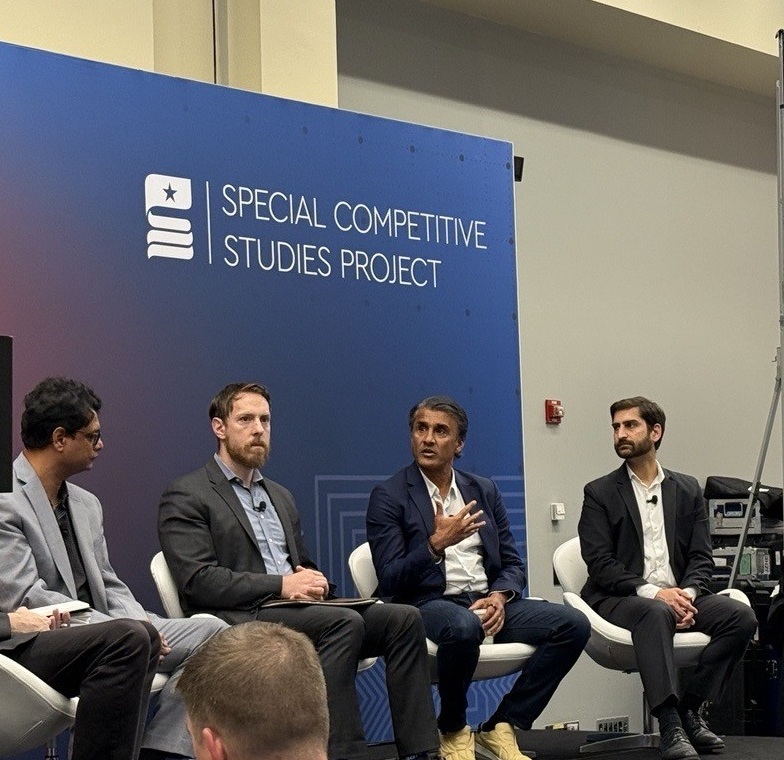How to build the pipeline of AI talent: Three Takeaways from the SCSP AI+ Expo

Of the many insightful and timely conversations at last week’s the Special Competitive Studies Project (SCSP) AI+ Expo, one stood out to me in particular. It was with a recent graduate attending NobleReach’s panel on mission-driven tech talent, who asked, “How do I talk to my peers, who want to make a difference and don’t realize that government is a place they can do that?”
Inherent in the question are the hopes and anxieties we see in many of the students and early-career professionals we work with across our programs. Seismic disruptions from the pandemic to global conflict to the advent of generative AI have given young people a deep desire to step up and make a difference. They’ve also underscored how much the working world has evolved.
Today’s graduates also want flexibility – the ability to choose the next chapter in their career without committing to one path for decades. While they do care about prestige, with historically low institutional trust, the name at the top of the job description matters less than the projects they’ll be working on and the impact they can expect to have. They’re facing a difficult job market, especially for entry-level positions, so they’re also concerned with their financial independence.
Against this backdrop, paradoxically, candidates like the young man from the AI+ Expo are exactly what many government agencies are looking for – and not just government. While young people with skills in critical areas like AI and cyber look for the perfect place to launch their career journeys, organizations across the public and private sector are searching for scalable ways to get the talent they need to compete in an AI-driven world.
Here are a few things all organizations should be doing to position themselves for success in the race for top AI talent.
- Highlight purpose, not process: Many organizations, especially in government, have no official descriptions for new functionalities like AI, resulting in job descriptions using vague, antiquated language to describe a day-to-day that may not connect with the applicant. When you tell a top graduate in AI from a premiere institution that they’ll be cutting the time to access government services in half, for example, or accelerating threat intelligence for servicemembers across the globe, they become a lot more interested in the role.
- As part of our NobleReach Scholars program, we work with federal, state and local government and mission-driven industry partners to craft job descriptions that will appeal to a curated pool of finalists with skills and experience in AI, cyber, business process innovation and more. A clear idea of what the candidates will be doing and why makes it much easier to find the right match.
- Reframe the revolving door: Today’s young people want to explore many different pathways in their career – and that’s a good thing. Time in the private sector helps develop commercial sensibility and entrepreneurial thinking, while public sector experience offers deep knowledge of our national challenges and how to solve them at scale. The more organizations can learn each other’s languages, the easier it becomes for them to recognize and benefit from great candidates from different industries who can offer transformative perspectives.
- Build the business case for impact: As a society, we’ve developed the persistent idea that you can either do good or do well. However, some of our most profitable innovations resulted from the need to solve a pressing national problem – often by combining the scale of the public sector with the agility of the private sector. Today’s top AI graduates want to have a bright financial future, and they want to contribute to a mission. Embracing their ethos will help attract those candidates and unlock opportunities to scale ventures that are successful because they are impactful.
More than any generation before them, today’s young people have grown up with change. Their adaptability, their resilience and their commitment to contributing to something greater than themselves represent an enormous opportunity to rebuild trust and accelerate AI innovation. Organizations across sectors must be ready to make the most of their potential.